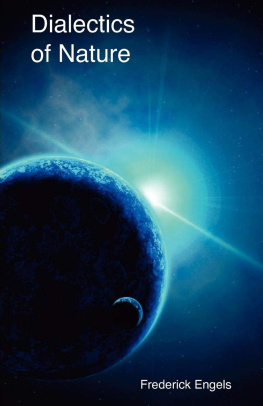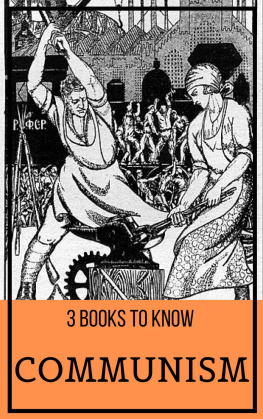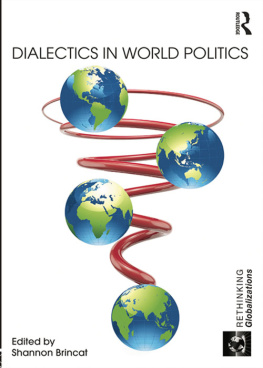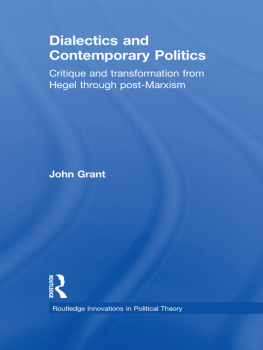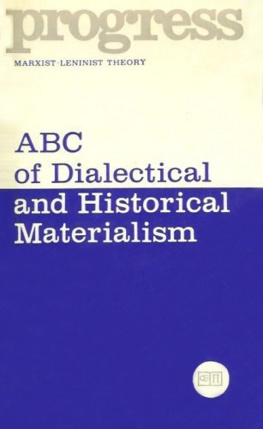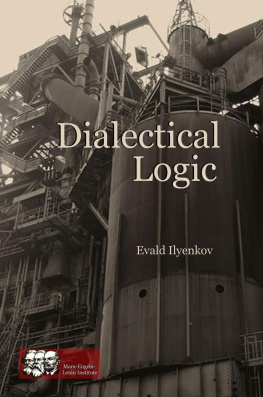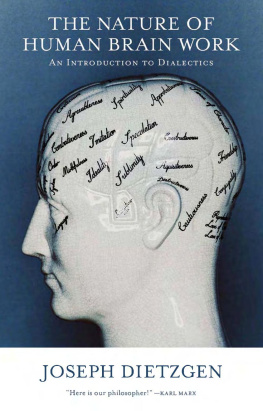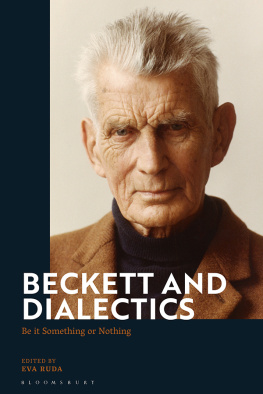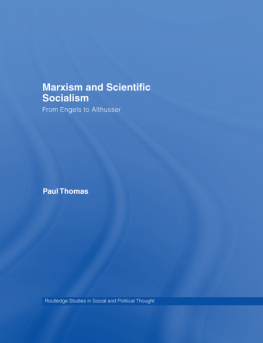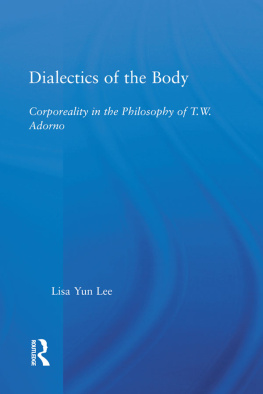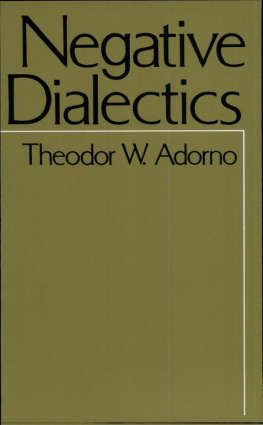Dialectics of Nature
Frederick Engels
First Published : in Russian and German in the USSR in 1925,
except for Part Played by Labour , 1896 and Natural Science and the Spirit World , 1898;
Transcribed : by Sally Ryan and jjazz@hwcn.org 1998/2001;
Notes and Fragments transcribed by Andy Blunden 2006.
Publisher: Marxist Internet Archive
Ebook by: E leanor
HTML: https://www.marxists.org/archive/marx/works/1883/don/index.htm
Contents
by J.B.S Haldane 1939
Articles and Chapters
, 1876
, 1878
Notes
Appendices
Notes to Anti-Dhring: (some duplication with notes above)
Notes to Anti-Dhring: (some duplication with notes above)
Index to the Contents of the Folders
Chronological List of Chapters and Fragments
Bibliography
MARXISM has a two-fold bearing on science. In the first place Marxists study science among other human activities. They show how the scientific activities of any society depend on its changing needs, and so in the long run on its productive methods, and how science changes the productive methods, and therefore the whole society. This analysis is needed for any scientific approach to history, and even non-Marxists are now accepting parts of it. But secondly Marx and Engels were not content to analyse the changes in society. In dialectics they saw the science of the general laws of change, not only in society and in human thought, but in the external world which is mirrored by human thought. That is to say it can be applied to problems of "pure" science as well as to the social relations of science.
Scientists are becoming familiar with the application of Marxist ideas to the place of science in society. Some accept it in whole or in part, others fight against it vigorously, and say that they are pursuing pure knowledge for its own sake. But many of them are unaware that Marxism has any bearing on scientific problems considered out of their relation to society, for example to the problems of tautomerism in chemistry or individuality in biology. And certain Marxists are inclined to regard the study of such scientific and philosophical problems as unimportant. Yet they have before them the example of Lenin. In 1905 the Russian Revolution had failed. It was necessary to build up the revolutionary movement afresh. Lenin saw that this could only be done on a sound theoretical basis. So he wrote Materialism and Empirio-criticism. This involved a study, not only of philosophers such as Mach and Pearson, whom he criticised, but of physicists such as Hertz, J. J. Thomson, and Becquerel, whose discoveries could be interpreted from a materialistic or an idealistic point of view. However, Lenin did not attempt to cover the whole of science. He was mainly concerned with the revolution in physics which was then in progress, and had little to say on astronomy, geology, chemistry, or biology.
But thirty years before Lenin, Engels had tried to discuss the whole of science from a Marxist standpoint. He had always been a student of science. Since 1861 he had been in close touch with the chemist Schorlemmer at Manchester, and had discussed scientific problems with him and Marx for many years. In 1871 he came to London, and started reading scientific books and journals on a large scale. He intended to write a great book to show "that in nature the same dialectical laws of movement are carried out in the confusion of its countless changes, as also govern the apparent contingency of events in history." If this book had been written, it would have been of immense importance for the development of science.
But apart from political work, other intellectual tasks lay before Engels. Dhring had to be answered, and perhaps Anti-Dhring, which covers the whole field of human knowledge, is a greater book than Dialectics of Nature would have been had Engels completed it. After Marx's death in 1883 he had the gigantic task of editing and completing Capital, besides which he wrote Feuerbach and The Origin of the Family. So Dialectics of Nature was never finished. The manuscript consists of four bundles, all in Engels' handwriting, save for a number of quotations from Greek philosophers in that of Marx. Part of the manuscript is ready for publication, though, as we shall see, it would almost certainly have been revised. Much of it merely consists of rough notes, which Engels hoped to work up later. They are often hard to read, and full of abbreviations, e.g. Mag. for magnet and magnetism. There are occasional scribbles and sketches in the margin. Finally, although the bulk of the manuscript is in German, Engels thought equally well in English and French, and occasionally produced a hybrid sentence, such as "Wenn Coulomb von particles of electricity spricht, which repel each other inversely as the square of the distance, so nimmt Thomson das ruhig hin als bewiesen." Or "In der heutigen Gesellschaft, dans le mchanisme civilis, herrscht duplicit d'action, contrarit de l'intert individuel avec le collectif; es ist une queue universelle des individus contre les masses." The translation has been a very difficult task, and the order of the different parts is somewhat uncertain.
Most of the manuscript seems to have been written between 1872 and 1882, that is to say it refers to the science of sixty years ago. Hence it is often hard to follow if one does not know the history of the scientific practice and theory of that time. The idea of what is now called the conservation of energy was beginning to permeate physics, chemistry, and biology. But it was still very incompletely realised, and still more incompletely applied. Words such as "force," "motion," and "vis viva" were used where we should now speak of energy. The essays on "Basic forms of motion," "The measure of motion - work," and "Heat" are largely concerned with the controversies which arose from incomplete or faulty theories about energy. They are interesting as showing how ideas on this subject developed, and how Engels tackled the controversies of his day. However many of these controversies are now settled. The expression vis viva is no longer used for double the kinetic energy, and "force" has acquired a definite meaning in physics. Engels would not have published them in their present form, if only because, in the later essay on tidal friction, he uses a more modern terminology. Their interest lies not so much in their detailed criticism of theories, many of which have ceased to be of importance, but in showing how Engels grappled with intellectual problems. The essay on electricity "dates" even more. As a criticism of Wiedemann's inconsistencies it is interesting, and it ends with a plea for a closer investigation of the connection between chemical and electrical action, which, as Engels said, "will lead to important results in both spheres of investigation." This prophecy has, of course, been amply fulfilled. Arrhenius' ionic theory has transformed chemistry, and Thomson's electron theory has revolutionised physics. Here again, the manuscript would certainly have been revised before publication. In a letter to Marx on November 23rd, 1882, he points out that Siemens, in his presidential address to the British Association, has defined a new unit, that of electric power, the Watt, which is proportional to the resistance multiplied by the square of the current whereas the electromotive force is proportional to the resistance multiplied by the current. He compares these with the expressions for momentum and energy, discussed in the essay on "The measure of motion - work," and points out that in each case we have simple proportionality (momentum as velocity and electromotive force as current) when we are not dealing with transformation of one form of energy into another. But when the energy is transformed into heat or work the correct value is found by squaring the velocity or current. "So it is a general law of motion which I was the first to formulate." We can now see why this is so. The momentum and the electromotive force, having directions, are reversed when the speed and current are reversed. But the energy remains unaltered. So the speed or the current must come into the formula as the square (or some even power) since (-x) = x.

